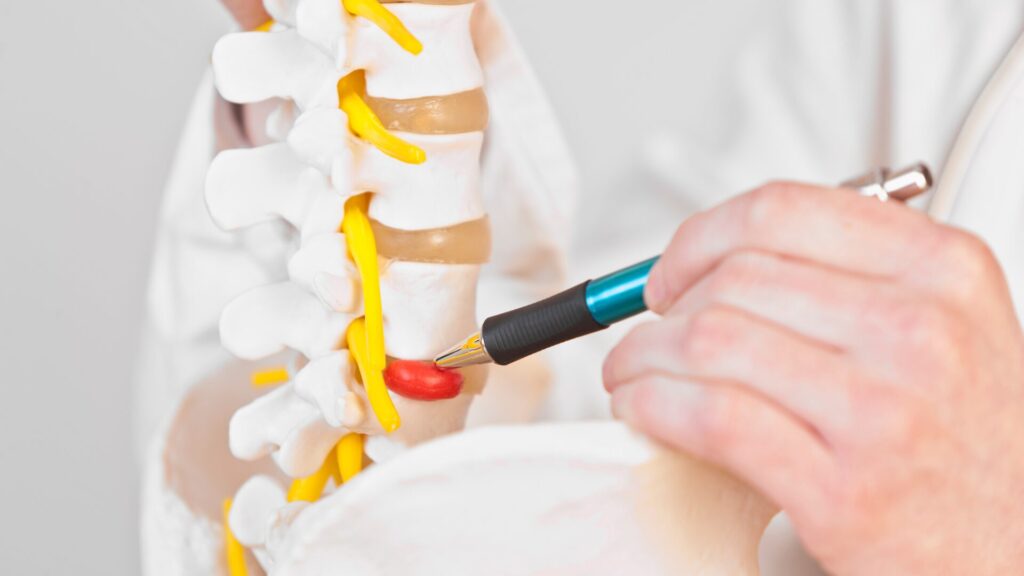MIS for Herniated Disc Surgery in Plano TX
Image sourced from Canva
In today’s post, we will give you complete information on herniated disc surgery in Plano TX. A herniated disc is a common spinal condition that can cause extreme discomfort and pain. The condition is also known as disc prolapse or slipped disc. Common symptoms of a herniated disc are weakness, numbness, and pain in your back. Read on!
Causes of Herniated Discs
A herniated disc occurs when the internal gel of an intervertebral disc stick out through the outer layer. There are 26 bones in the human spine. These bones are called vertebrae. Discs are cushion-like pads between each vertebra. These rubbery pads keep all vertebrae in place and have excellent shock-absorbing capabilities.
Discs in your spine have a unique structural mechanism, such as a strong exterior and a soft, jelly-like interior. A herniated disc occurs when the soft, jelly-like interior slips out through an exterior layer. Although a herniated disc can occur in any area of the spine, it is more common in the lumbar spine.
When the interior jelly-like material escapes the discs, it releases certain chemicals that disturb the nearby nerves, causing significant pain. The herniated disc also puts pressure on your nerves and causes discomfort or pain through compression.
The most common cause of a herniated disk is due to poor posture that results from repeated movements. Aging is another cause of a slipped disc. As you age, the water content in your spinal disc decreases. As a result, your discs become less flexible and more susceptible to splitting. Incorrectly lifting a heavy object can cause a slipped disc.
Treatment Options for Herniated Discs
Before undergoing Herniated Disc Surgery in Plano TX, a doctor usually prescribes medications to treat a herniated disc. The purpose is to see whether the discomfort and pain go away with medications. Over-the-counter (OTC) drugs, such as naproxen and ibuprofen, are often prescribed to treat the condition.
Doctors also prescribe nerve pain medications, such as amitriptyline, duloxetine, and gabapentin. When your symptoms do not go away with these drugs, your doctor will prescribe you narcotics or opioids.
These medications are acetaminophen, oxycodone, or codeine. Although narcotics can reduce pain, they can cause side effects like sedation, nausea, constipation, and confusion. Opioids or narcotics also have a higher tendency of causing dependence and addiction.
Your doctor may also prescribe muscle relaxants to help reduce muscle spasms. Although these medications cause analgesic effects on your spinal muscles and reduce pain, they can cause dizziness and sedation when taken for a prolonged period.
Moreover, your doctor may give you epidural injections to relieve pain quickly. These injections decrease inflammation and pain around your spinal nerve roots. Several physical therapy techniques, such as heat and cold therapies, ultrasound, traction, short-term bracing, and electrotherapy, can also help reduce a herniated disc symptoms.
Herniated Disc Surgery in Plano TX
Discectomy is the most common Herniated Disc Surgery in Plano TX. It is a minimally invasive surgery that involves making a tiny incision in the back and remove some parts of the herniated disc.
For instance, if the herniation has occurred in your neck, our neurosurgeon will perform an anterior discectomy. Our neurosurgeons often remove a portion of the bone that covers the nerve to create more space for the disc. This procedure is known as a laminectomy.
MINT’s neurosurgeons perform Herniated Disc Surgery in Plano TX, through minimally invasive surgery. It requires the surgeon to make a tiny incision and insert a small camera with specialized spine instruments. The surgeon may replace the disc with an artificial disc or bone graft material if the herniation has occurred in the lumbar spine.
Spinal fusion is another minimally invasive surgery. This Herniated Disc Surgery in Plano TX, often involves placing a bone graft material to stabilize the spine. Our neurosurgeon uses high-quality instrumentation, such as cages, plates, rods, and screws.
There are various types of bone grafts, such as autograft (patient’s own bone), allograft (donor’s bone), and bone morphometric protein. Sometimes, our neurosurgeons perform the surgery alongside laminectomy or discectomy to treat a herniated disc in the lumbar spine.
Benefits of Herniated Disc Surgery in Plano TX
Because it is a minimally invasive surgery, it does not involve making a large incision in the back or abdomen. Thus, it leads to less blood loss, fast and efficient surgery, no damage to delicate muscles and tissues in the spine, and shorter hospital stays.
One of the biggest benefits of minimally invasive surgery for a herniated disc is faster rehabilitation. Unlike open-back surgery that takes months, minimally invasive surgery has a recovery period of 4-6 weeks. Contact MINT for herniated disc surgery in Plano TX.

